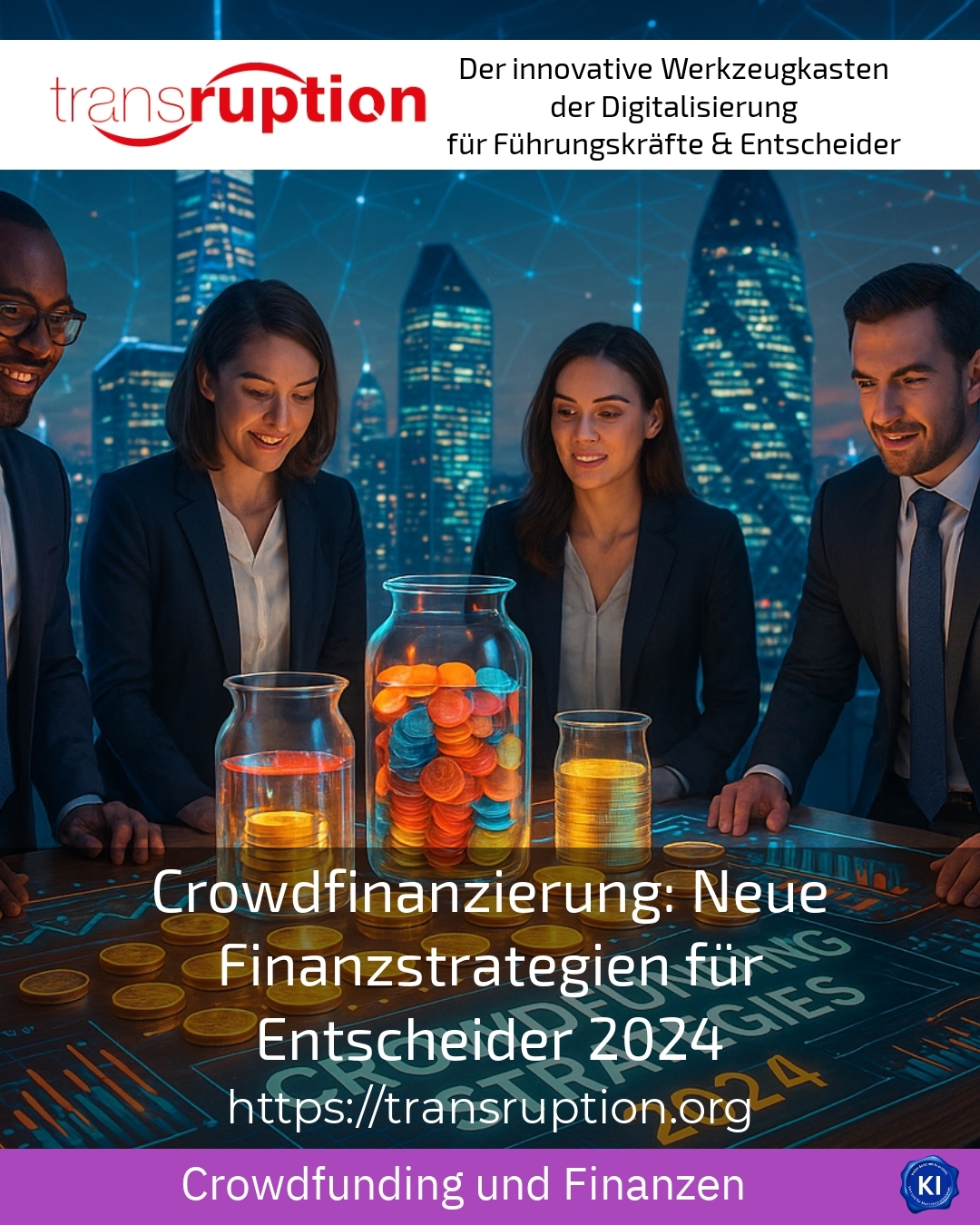Crowdfunding is becoming increasingly important as a modern financing strategy for decision-makers from various sectors. Its strength lies in mobilising capital through the support of a large number of people and thus enabling innovative projects. Companies and founders in particular benefit from this flexible way of utilising alternative financing channels and increasing the visibility of their project at the same time. This is why transruptions coaching provides effective support for crowdfunding projects.
Crowdfunding at a glance: Efficient financing strategy for decision-makers
Crowdfunding works by collecting many small contributions from a broad public via specialised online platforms. This swarm financing offers a quick and cost-effective alternative to traditional forms of financing such as bank loans or venture capital investments. The project initiators usually retain full control over their project and do not have to give up any company shares, which is particularly attractive for young companies and start-ups.
In the creative industries, for example, an innovative design company was not only able to secure funding through crowdfunding, but also build a strong community that actively supports and recommends the project. Similarly, a food start-up realised the implementation of a sustainable packaging solution through crowdfunding and benefited from valuable customer feedback even before entering the market. A medium-sized software company also used crowdfunding as part of its growth strategy to enable the market launch of a new product.
Advantages of crowdfunding for innovative projects
Crowdfunding offers several clear advantages that are relevant for decision-makers. Firstly, it enables capital to be raised quickly without the complex bureaucratic hurdles of traditional loans. In the case of a start-up from the environmental sector, for example, the necessary budget for prototype development was successfully raised within a few weeks.
Crowdfunding also supports the early identification of market potential through the direct involvement of supporters. One company from the fashion industry tested new collections with the help of the crowd and received valuable real-time feedback for product optimisation. This enables more risk-conscious and needs-based management of company resources.
In addition, crowdfunding campaigns promote the development of a committed community, which often also acts as brand ambassadors in the long term. One example of this is a sustainable brewery that uses exclusive offers and events to emotionally engage its supporters and thus achieve close customer loyalty. Organisers in the cultural sector also report increased attention and a positive media response as a result of successfully completed campaigns.
Practical examples from various industries
Industrial companies can use crowdfunding to specifically promote innovation projects. For example, an electronics manufacturer raised funds for the development of an energy-efficient device that was tested and further developed via the crowd.
In the social sector, a non-profit organisation enabled the expansion of an educational project for disadvantaged young people thanks to crowdfunding. Supporters received regular updates and insights, giving the project a community that goes far beyond mere funding.
And in the service sector, an agency used crowdfunding to launch a new consulting format that specifically targets sustainability strategies in companies, thus involving potential customers at an early stage.
BEST PRACTICE at the customer (name hidden due to NDA contract) A tech start-up supported the crowdfunding of its innovative app with strategic community building. Through targeted communication, not only was the financing target achieved, but a loyal user base was built up that recommended the product to others after the launch and provided valuable feedback.
Success factors for crowdfunding campaigns
For crowdfunding to be successful, clear definitions of objectives, a convincing presentation and transparent communication are recommended. Visual elements such as videos or graphics help to convey the idea clearly and create trust. The choice of suitable rewards that are tailored to the target group also increases the motivation for support. In a project for organic farming, exclusive product samples were offered as a reward.
It has also been shown that actively involving the community through regular updates and obtaining feedback has a positive impact on reach. A start-up from the renewable energy sector achieved a strong media presence and gained additional cooperation partners.
Finally, the financing phase should be well planned and scheduled in order to maintain momentum during the campaign period and achieve the set goal on time.
My analysis
Crowdfunding is a versatile and future-orientated financial strategy for decision-makers. It enables fast capital procurement, promotes innovative business models and creates valuable customer and supporter networks. The active participation of the crowd also provides important impetus for product development and improvement. At the same time, successful implementation requires clear planning, convincing communication and targeted community building. transruptions coaching supports companies and founders in mastering these challenges and ensuring the long-term success of their crowdfunding campaigns.
Further links from the text above:
Crowdfunding: New ways for decision-makers and...
Crowdfunding: How crowdfunding works
Crowdfunding in Germany: The complete guide
Crowdfunding for entrepreneurs: all the information
What are the advantages and disadvantages of crowdfunding?
For more information and if you have any questions, please contact Contact us or read more blog posts on the topic TRANSRUPTION here.
















